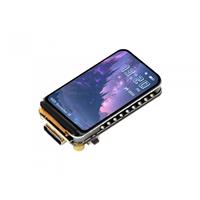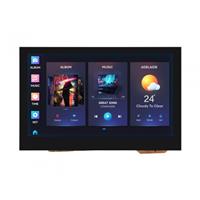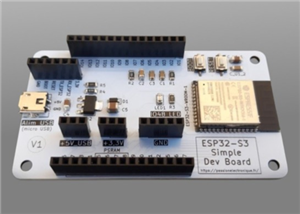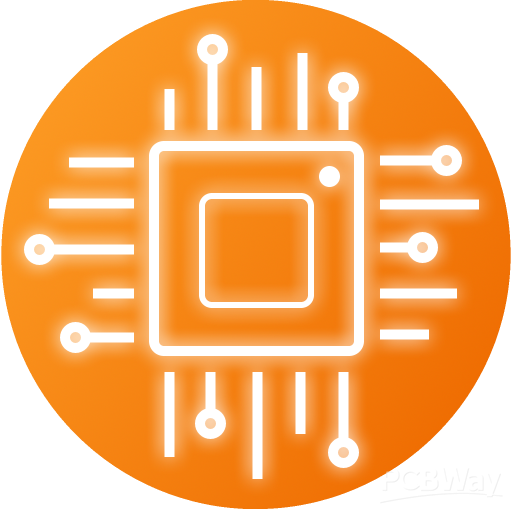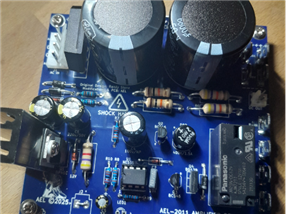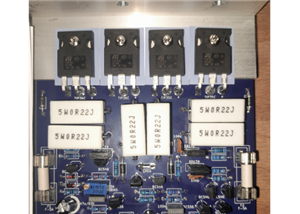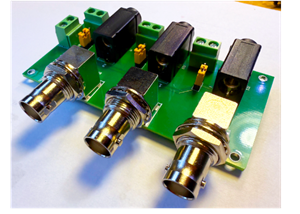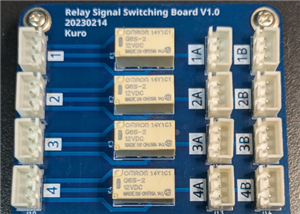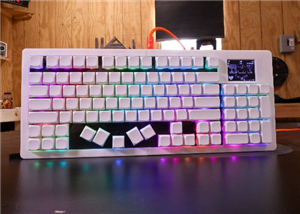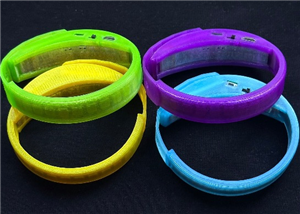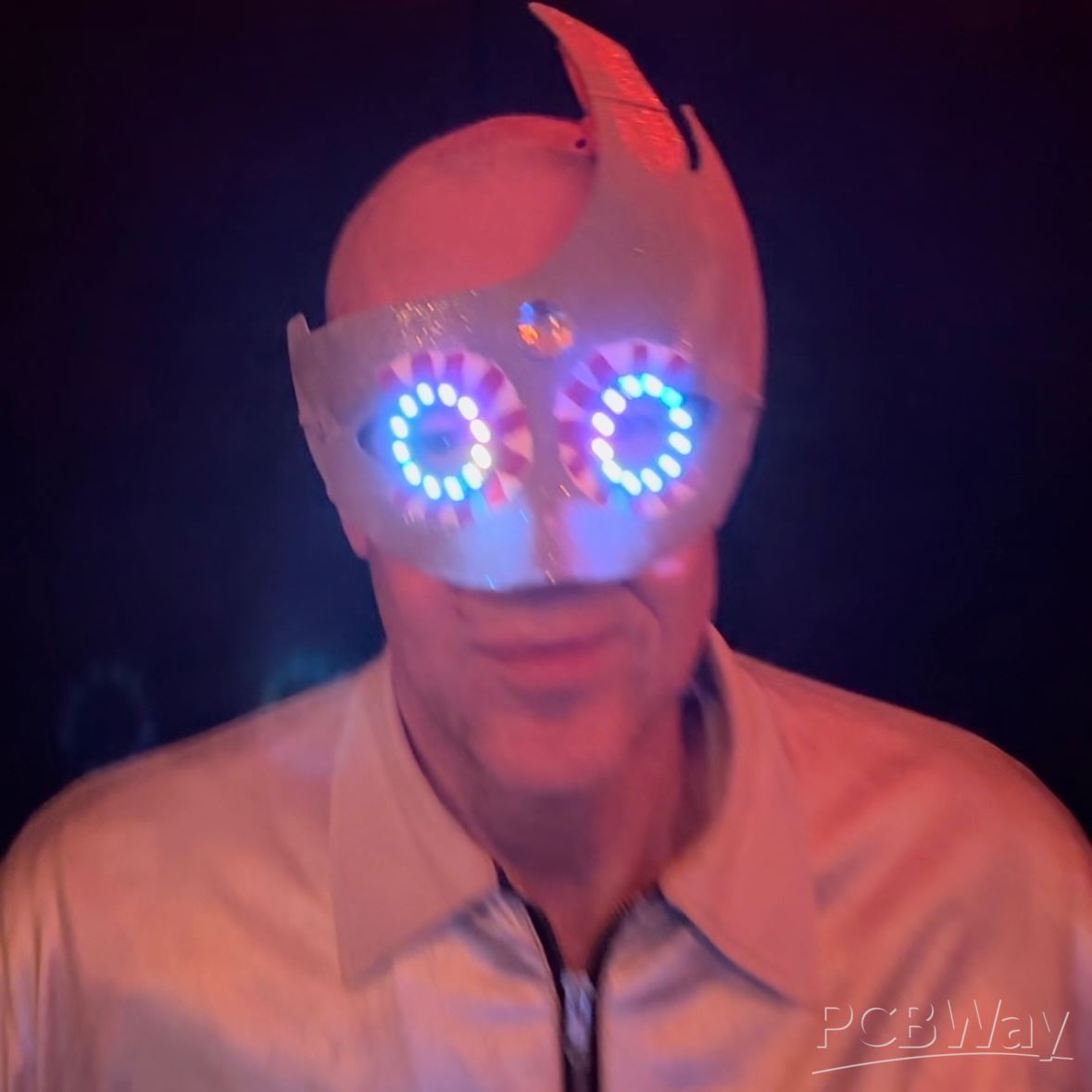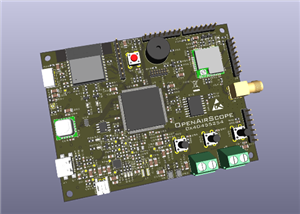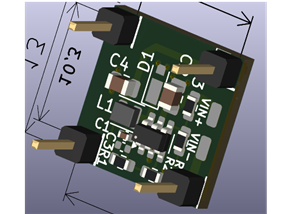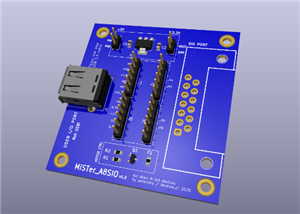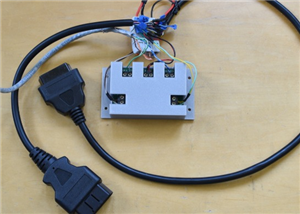Wheel-E The self balancing Robot
Overview:
This project is inspired by Sean HodginsPiddyBOT. Based on Arduino Nano, this is a great project for students to start learning Control systems such as PID system. With the powerful support of Arduino, advanced Robotics enthusiasts can use the Wheel-E PCB to incorporate complex codes with closed loop system using encoders or the IR sensor slots.
Supplies:
Components needed:
- Wheel-E PCB x 1 (DM to Buy)
- N20 micro metal motors x 2
- MPU6050/9250 x 1
- Arduino Nano x 1
- TP4056 Battery charging Module x 1
- XL6009 Boost Converter Module x 1
- L293d motor driver x 2
- TactileSwitch x 2
- 10Kohm Preset x 3
- 5050 RGB led x 1
- Other miscellaneous resistors
I design my PCBs in Altium software (to download click here) .At the start you need to know which features you want to be in the PCB. I wanted this PCB to have Potentiometers for adjustment and tuning of PID algorithm in real time without changing the code every time. My design uses two motor drivers in dual channel mode to provide more current capacity to the motor.
Features of this design include:
- Necessary passive components that'll be used for user interface.
- MPU6050/9250 is used for angle measurement
- L293D motor driver is used to control the N20 micro metal gear motors in Open loop
- connections two IR sensors and two servos are also added for self stand-up of the robot.
- Peripherals for Bluetooth and OLED are also provided.
- TP4056 based battery charger module ( to charge the battery hence we wont have to disassemble the bot for charging)
- GenericBoost module to boost 3.7V of the battery to operable 5V.
- Buzzer for user interface.
- Buttons to set Zero and Reset the system
Specifications of PCB:
- Size of the PCB is 77 x 94 mm
- 2 layer FR4
- 1.6 mm
Improvements :
- Self Stand up:
Wheel-E provides slots for two Servo motor connections. These can be used to make Wheel-E stand from horizontal position on its own. Since the weight is less, small servos can be easily used for this Modification.
- IR sensor based Second Feedback:
Two IR sensors can be connected directly on the PCB facing downward. These can be used as a second feedback to make the system closed loop and add potential of going forward and backward using external controller.
- Bluetooth Controller:
Wheel-E has integrated slot for HC-05 bluetooth module that can be used to control the robot via smartphone using an app.
- Encoder-Motors:
Encoded N20 motors can be used to make a complex yet fully precise two wheel balancing robot.
Wheel-E The self balancing Robot
*PCBWay community is a sharing platform. We are not responsible for any design issues and parameter issues (board thickness, surface finish, etc.) you choose.
- Comments(4)
- Likes(10)
-
 Faruk Dikbas
May 29,2024
Faruk Dikbas
May 29,2024
-
 Engineer
May 26,2023
Engineer
May 26,2023
-
 Engineer
Feb 18,2022
Engineer
Feb 18,2022
-
 Anirudha Gaikwad
Aug 17,2020
Anirudha Gaikwad
Aug 17,2020
-
 Sebastiao pereira de Mesquita
Aug 07,2020
Sebastiao pereira de Mesquita
Aug 07,2020
-
 Brian James
Aug 06,2020
Brian James
Aug 06,2020
-
 Simon Marston
Aug 04,2020
Simon Marston
Aug 04,2020
-
 Giovanni CyB3rn0id at Settorezero.com
Jul 19,2020
Giovanni CyB3rn0id at Settorezero.com
Jul 19,2020
-
 Michael Mader
Jul 19,2020
Michael Mader
Jul 19,2020
-
 Anirudha Gaikwad
Jul 19,2020
Anirudha Gaikwad
Jul 19,2020
- 3 USER VOTES
- YOUR VOTE 0.00 0.00
- 1
- 2
- 3
- 4
- 5
- 6
- 7
- 8
- 9
- 10
- 1
- 2
- 3
- 4
- 5
- 6
- 7
- 8
- 9
- 10
- 1
- 2
- 3
- 4
- 5
- 6
- 7
- 8
- 9
- 10
- 1
- 2
- 3
- 4
- 5
- 6
- 7
- 8
- 9
- 10
-
10design
-
10usability
-
10creativity
-
10content

-
10design
-
10usability
-
10creativity
-
10content

-
10design
-
10usability
-
10creativity
-
10content
 More by Anirudha Gaikwad
More by Anirudha Gaikwad
-
 Arduino based Serial Transmitter
Commercially available transmitter and receiver pairs are usually PPM or PWM based. Using them with ...
Arduino based Serial Transmitter
Commercially available transmitter and receiver pairs are usually PPM or PWM based. Using them with ...
-
 POV Fidget Spinner
Fidget spinners are always fun to play with but don't necessarily have a purpose, keeping this in mi...
POV Fidget Spinner
Fidget spinners are always fun to play with but don't necessarily have a purpose, keeping this in mi...
-
 "Miles" the Open-Source Quadruped Spider Robot
It uses 8 SG90 / MG90 Servo motors as actuators for the legs, consists of a custom PCB made to power...
"Miles" the Open-Source Quadruped Spider Robot
It uses 8 SG90 / MG90 Servo motors as actuators for the legs, consists of a custom PCB made to power...
-
 Wheel-E The self balancing Robot
Overview:This project is inspired by Sean HodginsPiddyBOT. Based on Arduino Nano, this is a great pr...
Wheel-E The self balancing Robot
Overview:This project is inspired by Sean HodginsPiddyBOT. Based on Arduino Nano, this is a great pr...
-
-
AEL-2011 Power Supply Module
555 0 2 -
AEL-2011 50W Power Amplifier
514 0 2 -
-
-
Custom Mechanical Keyboard
710 0 0 -
Tester for Touch Screen Digitizer without using microcontroller
340 2 2 -
Audio reactive glow LED wristband/bracelet with NFC / RFID-Tags
322 0 1 -
-
-



















